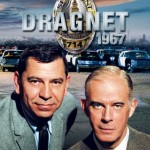- Distasteful Experiences +
- God’s Grace =
- Abundant Life
For most people, looking for a job is one of life’s most distasteful experiences.
I meet several JobSeekers each year who’ve been searching 12 months or more. Along with unemployment, there are usually other complicating factors involved. Things seem to go from bad to worse. There have been times in my life that have been pretty rough too. I have learned and witnessed that God can use all experiences for our good.
Rick Warren uses a great analogy in The Purpose Driven Life: “To bake a cake you must use flour, salt, raw eggs, sugar and oil. Eaten individually, each is pretty distasteful or even bitter. But bake them together and they become delicious. If you will give God all your distasteful, unpleasant experiences, he will blend them together for good.” Warren uses Romans 8:28 as his text: “And we know that in all things God works for the good of those who love him, who have been called according to his purpose.”
In the midst of job loss, financial hardship, stress and strain on relationships, health issues, waning self-esteem and other challenges, I encourage you to do these three things:
1. Do a checkup from the neck up.
This great piece of advice from Zig Ziglar is especially important for job seekers. On my list of the top 13 job search variables, attitude is number one. If you don’t project a positive attitude, your search will become much, much more difficult. Ziglar says, “Your attitude determines your altitude.”
Abraham Lincoln said, “People are just about as happy as they make up their minds to be.” Decide right now that you are going to have a positive, expectant attitude. Paul did. In Philippians 4:12b-13 he says, “I have learned the secret of being content in any and every situation, whether well fed or hungry, whether living in plenty or in want. I can do everything through him who gives me strength.” If you want to compare what you are going through to what Paul went through, click here: 2 Corinthians 11:16-33.
2. Ask God what he wants you to learn from all this.
In elementary school, kids aren’t supposed to get promoted to the next grade unless they meet certain standards. In life, we may not get promoted until we learn the lessons God wants us to learn. One of my clients taught me that God loves us so much that sometimes he won’t let us move forward in our careers until we learn (finally) what he wants us to learn. Let your defenses down, open your mind, listen to feedback, and yield your will to God’s will.
God is the Certified Master Chef; he may not want you to bake cakes until you have mastered making waffles from a box recipe. Do whatever is necessary to gain the necessary experience, and to develop the attitude, skills and knowledge you need to move on to cake baking. With God’s help, you will learn how to blend the ingredients of your life and bake them into a productive career.
3. Trust God that good things are happening.
This was true in my own transition in 2000. I got pretty frustrated when I came in second on several interviews. What I didn’t realize – and couldn’t see – was that God was working in the background all along. I teach folks to ask God for what they want, but to be willing to take what God gives them; it will be better than what they ask for. In 2000, I received something much better than what I asked for – at just the right moment in time.
Now that all the ingredients are mixed together, it’s time to go to the oven. It gets mighty hot in that oven! It appears that nothing is happening at first, but the cake is going to be warm and delicious in about an hour. Your life and career will be back in order soon, though it will likely take more than an hour!
View your present situation from the perspective of your future good condition, just as you would view the raw ingredients of a cake in their future state. God can use all of your experiences – good and bad – for his purposes. It takes a willing spirit on your part. Lay all your cares at the foot of the cross. Ask God what He wants you to learn as you go through this transition. Then pray for guidance. And the peace of God will be with you.
See you Friday at JobSeekers – God’s cake-baking school.
Copyright © 2004-2019 / Dave O’Farrell / All Rights Reserved

















